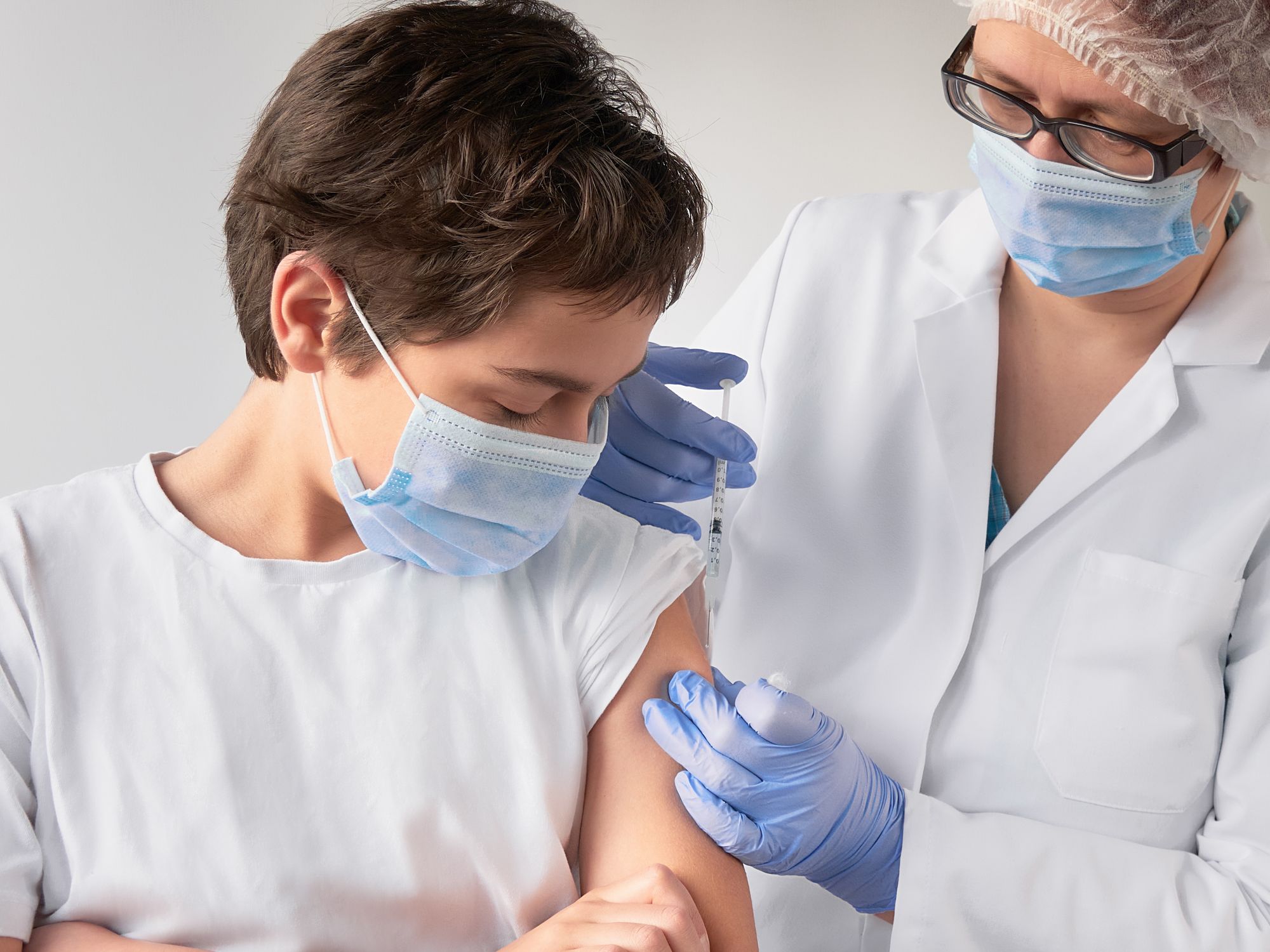Risks to healthcare workers

- Healthcare workers who provide face-to-face care for sick patients are at increased risk for measles.
Healthcare workers, including clinical and support staff, have daily encounters with sick patients and are at an increased risk for exposure to measles. Workers providing direct, face-to-face patient care may be at the highest risk of exposure, especially in communities with ongoing measles outbreaks. However, as most measles cases in the U.S. result from international travel, domestic measles outbreaks are not the only scenario in which HCWs may encounter individuals with measles; travelers may return from abroad with the measles virus and seek care at U.S. hospitals, clinics, and other facilities. Other workers in healthcare environments, such as receptionists and food services assistants, may also share breathing air with infectious patients or encounter environments with potentially infectious measles virus.
Activities that can lead to HCW exposure include:
- Triaging or providing care to an infected patient-pediatric (i.e., child) or adult.
- Performing aerosol-generating procedures (AGPs) on an infected patient (e.g., intubation, airway suctioning). Although measles is already considered an airborne-transmissible disease, AGPs may increase transmission risk by adding to the concentration of measles virus suspended in the air in the work environment.
- Working in environments where an infected patient or coworker is or has been within the previous two hours.
- Cleaning or otherwise having contact with environmental surfaces contaminated with an infected person’s infectious body fluids (i.e., respiratory secretions, saliva).
